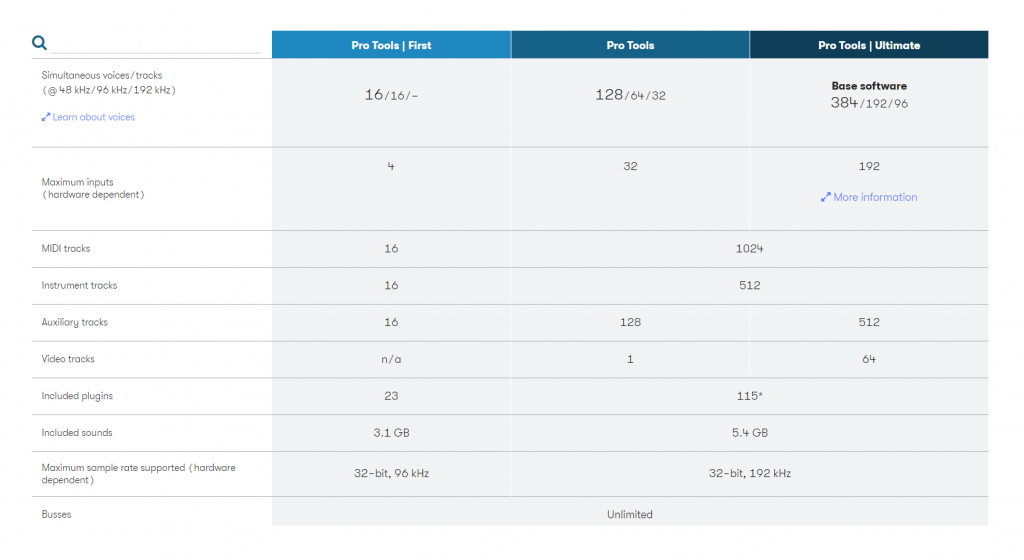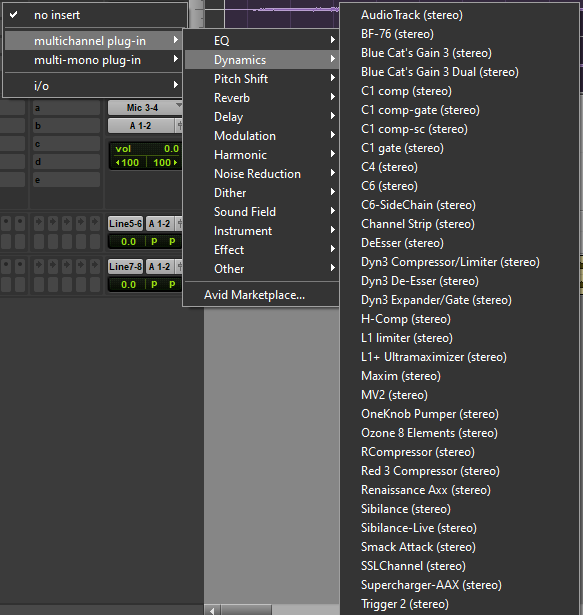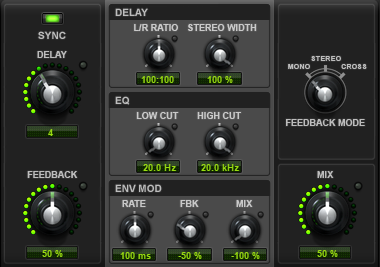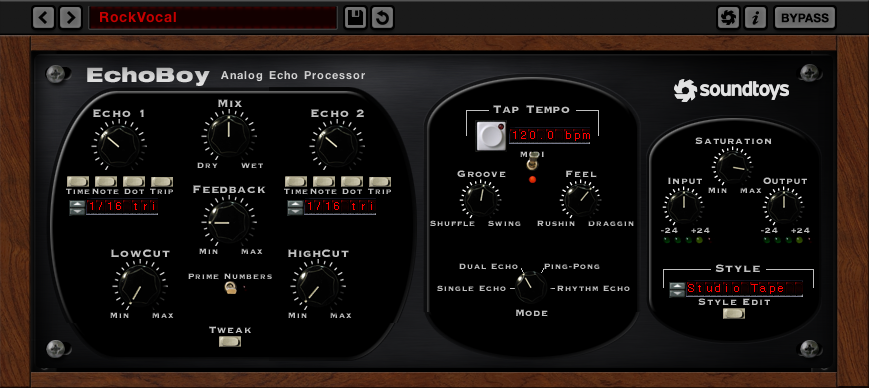Why would anyone need to buy an EQ plugin? Every DAW already has an EQ included, right? Compressors too. Why pay more for a compressor that has basically the same functions?
There are a few good reasons, and we’re going to find out what they are. But that doesn’t mean that you can’t make professional mixes with only stock plugins. Let’s talk about the situations in which you might choose stock over third party or third party over stock.
This is… Stock Plugins vs. 3rd Party Plugins! Let the battle commence!
Reasons To Use Stock Plugins
1. Cost
The biggest reason to use stock plugins over 3rd party plugins is of course the fact that they don’t cost extra. If you’ve paid for a premium DAW you’ll find that plenty of plugins are included. EQs, compressors, reverbs, modulation effects – it’s all there. Even if you’ve gone for a free DAW, the basics will still be included. Pro Tools First (a free DAW) includes 23 plugins. It seems small compared to the paid versions’ 115, but sometimes all you need is the basics.

And they’re normally pretty good too. Great, even. I must have about 25 different EQs available to me and I still find myself using the stock ones 90% of the time.
3rd party plugins can come with a hefty price tag. For example, FabFilter Pro-Q 3 (a popular EQ plugin) currently costs £134/$179. And Universal Audio’s Lexicon 224 recreation will set you back a whopping £260.
2. Ease of Use
Stock plugins are often great starting points for beginners because they’re generally straightforward to use. DAW manufacturers tend to stick to a similar interface for their plugins across the board, with few surprises. They also rarely offer any experimental settings or features, so you know what you’re getting, and they tend to come with a pretty flat learning curve.
3. Availability and Licensing
The stock plugins that come with your DAW will run using the same license as the DAW. 3rd party plugins normally need their own separate license either registered to a user account or to a physical USB drive. This can be an issue for two reasons.
Firstly, there are more points of failure. USB keys can fail or go walk-about. Certain digital licenses require an internet connection to activate, and will need reactivation if you ever have to reinstall your operating system. If you have a session you’re working on that relies on multiple licensing systems, if just one of those systems goes wrong, you might end up not getting a mix out in time. If you only have to worry about your DAW license, you’re at less risk.

And secondly, it can be overwhelming keeping your plugins organised and working correctly. Recently, my PC decided to turn itself off and not turn back on again. After a few hours of troubleshooting, it turned out that the motherboard was the source of the problem and needed replacing. It had to be the hardest part to replace, didn’t it?! I had to completely rebuild my PC. Sounds like a pain doesn’t it? Well, not as much of a pain as having to reinstall and reactivate all of my 3rd party plugins, believe it or not!
Reinstallation, searching for license keys, resetting passwords to accounts, pointing the DAW to the right folder locations… it’s a nightmare. It interrupts the workflow and wastes valuable audio production time. Sticking with stock avoids this issue.
4. Force Yourself to Learn
By limiting yourself to only using stock plugins, you’re forcing yourself to learn them. Pro records can be made with stock plugins, so limiting yourself and preventing yourself from getting in the mindset that you can “fix your mix” by buying that one plugin that all the pros use, can help you to focus on what really matters.
Reasons To Use 3rd Party Plugins
1. A Different Sound
Different compressors sound different. Different reverbs sound different. You may need to look elsewhere if your stock plugin just doesn’t have the sound that you’re looking for. This is especially apparent for those looking for an emulation of a certain hardware device.
For example, I used to record at a classic studio that used Neve 1073 pre-amps/EQs. The sound of the unit is iconic. It’s warm, it’s gritty, and I wanted to replicate its tone. Sadly I didn’t have a couple of grand lying around to buy a hardware replication, but I could afford Waves’ software replica! Now of course, it doesn’t sound exactly the same, but if you’re looking for something specific, you may want to consider forking out for a 3rd party plugin that fits the description.
2. Additional Features
Not only can they sound different, they may also come with different features all together. Just take a look at the difference between this stock delay plugin and EchoBoy from Soundtoys. The stock plugin is a fine delay, but there are some features that it just doesn’t include. A tap tempo tool, groove and feel options, saturation controls… if certain features aren’t included, you’ll want to consider upgrading.


3. Moving Between DAWs
Stock plugins might not be the best choice for those of you who use multiple DAWs. Logic’s stock plugins are different to Cubase’s, or any other DAW for that matter. You can get better mixes and speed up your workflow by learning how a plugin sounds and works. If you keep having to change them though, you’ll have trouble getting used to your plugins.
One benefit of using mainly 3rd party plugins is that you can carry them around and use them at any studio or on any computer with the DAWs that they’re compatible with. Simply load up your USB key with the licenses and you’ll be able to use them wherever you are. Also, you’ll be able to replicate your mix on another DAW if you end up in a situation where you don’t have access to your original mix.
4. Expand Your Knowledge
An argument for using stock plugins was their ease of use, but this could also be to your detriment. It may be beneficial to try out some 3rd party plugins if you’ve been using the same stock plugins for years. Yes, spending a lot of time using the same tools can really boost your skills, but you’ll find that there are diminishing returns at the top of the learning curve.
Have you only ever used parametric EQs with visual representations of the sound waves? Consider trying out an EQ with just knobs and faders, like the Waves SSL E-Channel, and see if you can EQ with just your ears! DAWs often lack certain types of plugins, too. For example, Pro Tools doesn’t come with a stock multiband compressor, so you’ll have to invest in a 3rd party plugin if you want to learn how to use a multiband.
The Verdict
The most important point to take away from this face-off is that you can absolutely make professional records using just stock plugins. In many ways, whether you’re a pro or you’re just starting out, you’re better off using them. However, there are certain situations where a stock plugin just won’t give you what you need, whether that’s a specific feature or a desired sound.
Ultimately, a beginner should start off learning with just stock plugins in most cases. And if you do decide to invest in some 3rd party offerings in the future, there should be a specific reason for choosing that particular plugin over what you already have. ‘Achieving a pro mix” should never be the reason. If your mixes aren’t sounding right, your skills, ear and technique will need working on – simply buying whatever plugin you’ve seen a veteran engineer use won’t fix your mixes.
If you’re just starting out consider checking out my “Mixing a Rock Song From Start To Finish” video series. I professionally mix a song from start to finish using mainly stock plugins – and if I can do it, then you can do it too!
Reasons To Use Stock Plugins
- Cost
- Ease Of Use
- Licensing and Availability
- Forcing Yourself to Learn
Reasons To Use 3rd Party Plugins
- A Different Sound
- Additional Features
- Moving Between DAWs
- Expand Your Knowledge
Pingback: How Do I Add Plugins To Ableton? – Erickkasysavane
This has been very helpful. Thank you!
Happy to help 🙂